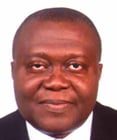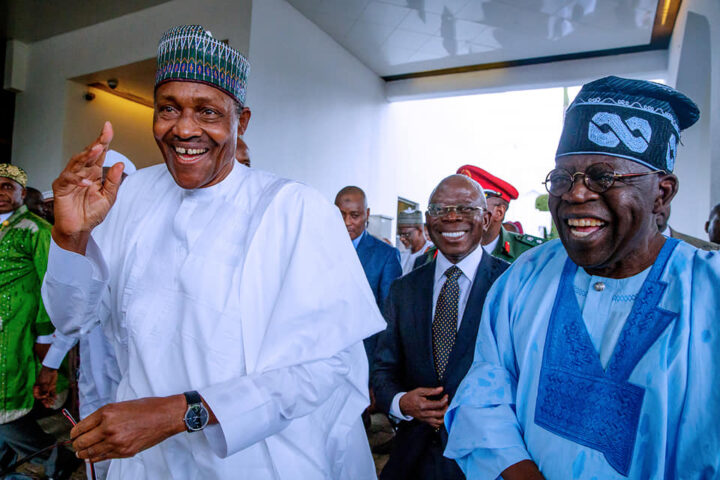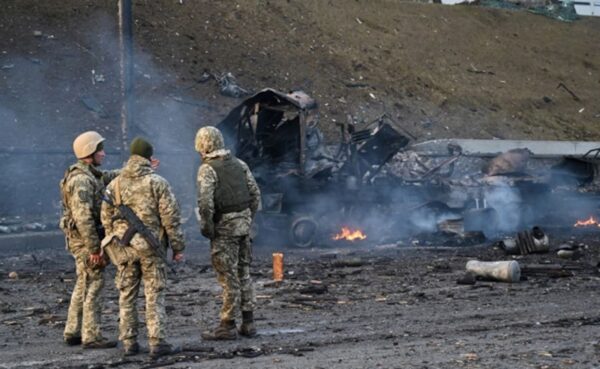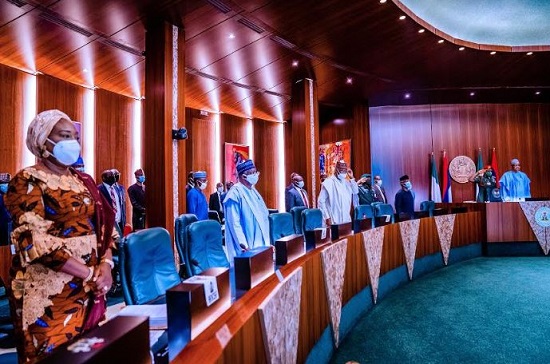When I arrived Mississauga, a large Canadian city bordering Toronto on Lake Ontario, about 15 minutes’ drive from Pearson International Airport on January 20, 2022, temperature was –9 degrees Celsius. It was below freezing point, with humidity at 72% and winds travelling at around 11 km/hr.
In addition to uploading information on ArriveCAN – the app for travelers arriving Canada to confirm their COVID-19 vaccination status — before you can board the flight, you are also required to take a PCR test as soon as you land at the airport in Toronto.
Wherever we find ourselves, Rotary allows us to build great connections because we belong to a global family of over 1.4 million Rotarians in more than 200 countries and geographical regions. A Google search led me to the Rotary Club of Mississauga, District 7080; they meet on Tuesdays at 1.00 pm.
There are other Rotary clubs in the city of Mississauga with a population of about a million people. After vising the club’s website, I discovered that they hold virtual meetings twice a month. The reason was not farfetched: COVID-19 was responsible.
Advertisement
I sent an email to Lynn Lewis, president of the club. This was her response: “Our next meeting is on Tuesday, February 15th at 12:00 noon by Zoom. I will send you the link on Sunday or Monday. Our speaker on Tuesday is past district governor (PDG) Carl-Heinz Duisberg from South Africa. Look forward to meeting you”.
On the appointed day and time, I joined the meeting. PDG Duisberg — of German origin – is a member of the Rotary Club of Johannesburg in District 9350 comprising Angola, Namibia and South Africa. The club was chartered on April 25, 1921.
After the introduction of vising Rotarians and guests, I received a message from Rotarian Lorraine Crow, a member of the club. She linked me up to Uche Okugo, a Nigerian living in Brampton – next door to Mississauga, about 21 kilometres away. If you drive, it will take you about 18 mins.
Advertisement
Okugo is president-elect of the Rotary Club of Brampton and District 7080 Interact Chair. He is also the president of the Network of Nigerians (NNC) in Canada. Brampton is Canada’s 9th largest city in Ontario’s Greater Toronto Area (GTA). Okugo and I also exchanged emails and told me that he was a member of the Rotary Club of Ota before he relocated to Canada.
As president, Okugo intends to visit Nigeria with members of his Rotary club in the first quarter of 2023 and I told him my club will be glad to host them. Rotary’s friendship and cultural exchange is an international exchange programme for Rotarians and friends and it is Rotary’s way of promoting friendship and diversity. It allows participants to take turns in hosting one another in their homes and clubs.
A statement on Rotary International’s website says friendship exchanges should be organised around at least one of three themes: culture, service and vocation. Participants may travel as individuals, couples, families or groups and may be Rotarians or not.
Friendship exchange allows participants to broaden international understanding, explore profession or job in a different context, build enduring friendships, establish a foundation for peace and service, gain opportunities for active project involvement and support, learn about a region’s people, food, languages, customs and history, as well as finding partners for grants.
Advertisement
My Rotary club – the Rotary of Lagos, District 9110 – under the leadership of Wale Agbeyangi, the club’s 61st president, is also embarking on a friendship exchange visit to Kenya from March 8–13, 2022. Our host club is the Rotary Club of Karen in Nairobi.
Apart from a joint club fellowship, one of the thrills of the visit will be a hiking experience to Menengai Crater in Nakuru to raise funds for one of their projects at Ngaimurunya Primary School. Others include a visit to the Giraffe Centre and Karen Blixen Museum, safari tour of the national park, visit to the Masai market and dinner at the famous Carnivore restaurant.
According to Okugo: “The Network of Nigerians in Canada is a non-partisan organisation focused on supporting new immigrant Nigerians and old/established Nigerians with information and support, to attain greater heights with networking and to change the Nigerian narrative in Canada by engaging and partnering with government at all tiers with cultural and integration programmes”.
“We requested for and received the first Proclamation of June 12 as Democracy Day in the world from the City of Brampton, organized flag raising ceremonies for October 1 and hosted our annual program tagged #NaijaFest”.
Advertisement
What Okugo is doing with NNC is commendable. Changing the “Nigerian narrative” is a responsibility for all Nigerians in every part of the world, despite our challenges which, by the way, are quite many.
At the Rotary Club of Mississauga virtual meeting, the guest speaker, PDG Carl-Heinz Duisberg, who spoke from Cape Town, South Africa using Zoom, revealed that Rotary was growing in Africa with 17 districts (Nigeria alone has four districts) and three regions.
Advertisement
With a steady growth rate of about 5%, membership was 41,702 as at January 1, 2022. Female membership is also growing but it is only in Libya and Somalia out of the 54 countries in Africa that we do not have Rotary.
The highlight of his presentation was when he explained the effects of the pandemic on the clubs and members in South Africa. He also discussed the project they executed with the support of 50 clubs in Germany and The Rotary Foundation in support of the Khomani San, Bushmen of South Africa who have one of the oldest DNA of modern human beings.
Advertisement
South Africa, just like other countries in the world, was not spared the devastating impact of the global epidemic. By the end of March 2020, there was forced lockdown for eight weeks and a ban of alcohol was enforced.
When taken together with the effect of Omicron variant infections, global travel was restricted again resulting in a decline in South African tourism by about 80%. Unemployment rate also went up by about 35% with youth unemployment averaging 66.2% last year. Nigeria also recorded similar high unemployment rates – 35% and 55% respectively.
Advertisement
With hunger, business failures and job losses becoming the new normal, how did District 9350 respond to the COVID-19 situation in South Africa? PDG Duisberg said Rotarians created hunger/hygiene schemes and food projects which helped to attract new members. Vegetable gardens were encouraged for the urban poor – more like “operation feed yourself” by eating fresh vegetables and herbs grown from your own food garden.
As district governor during COVID-19 pandemic, Duisberg was only able to visit few Rotary clubs in-person and conducted other visits by Zoom due to movement restrictions. Interestingly, clubs recorded high attendance in Zoom meetings, while younger members who were tech-savvy helped the elderly to become familiar with technology. “I convinced Rotary clubs to prioritise looking after their members over doing projects during the pandemic because retaining members was vital,” he explained during his presentation.
The second part of PDG Duisburg’s presentation was on the peace project in District 9350. The objective was to create peace for one of the first civilizations of modern mankind – the indigenous people of South Africa, Khomani San (the estimates of their DNA range between 29,000 and 40,000 years).
According to PDG Duisberg, the project was designed to give the Khomani San a chance to live in peace, freedom, dignity, and economic independence, while retaining their traditional identity. Four projects were launched for this purpose: Khomani San Council capacity building, development and management of Khomani San parks and farms, eco-tourism and basic education and vocational skills training.
Significant achievements were recorded in the four projects. For example, in the first project, all the staff were trained in village-based governance, community-based natural resource management, performance-based work plan development and basic wild life economy. In the second project, a game farm, Erin, was developed as a hunting farm.
As for the third project, a website under www.khomanisan.com regarding the history of the Khomani San was developed. The “Khomani San Experience” is showing tourists, for example, tracking on Erin farm; introducing bow-and-arrow as a unique bushman hunting technique, and how to light fires without matches or firelighters. Traditional foods and their ingredients, herbs and healing plants are also part of the programme.
Finally, education and training was included to help the San re-fresh their cultural awareness and understanding. Young San people who are skilled and proud of their identity will like to stay in the region.
Since 2014 a total of 19 “Veldschool” workshops were conducted with an overall total of 237 Khomani participants. The subjects comprised passing on traditional songs, dances, games and handcraft, as well as passing on the know-how concerning medicinal healing plants and tracking in each case.
Braimah is the publisher-editor-in-chief of Naija Times (https://naijatimes.ng) and district secretary, Rotary International District 9110
Views expressed by contributors are strictly personal and not of TheCable.
Add a comment







